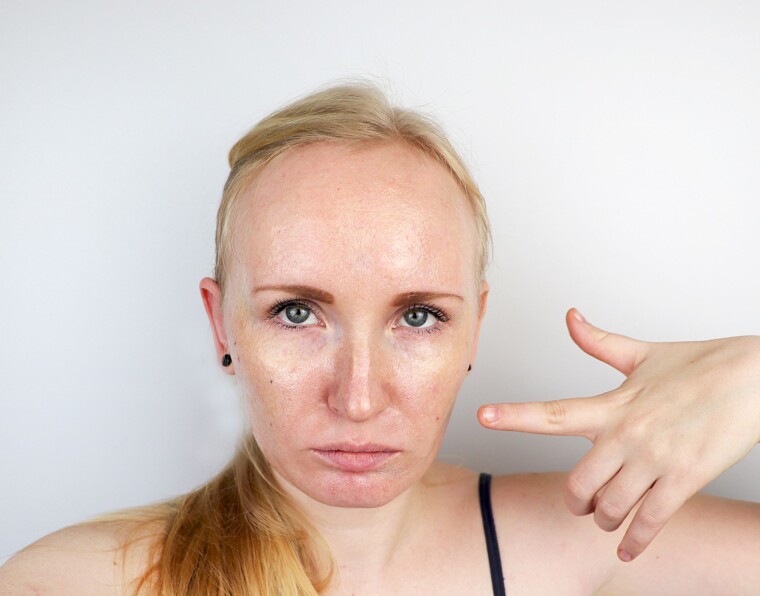Have you ever wondered how to get rid of dead skin on lips? It’s a common question, and while there are many ways to remove it, they all require more than one step. Skincare is personal, and everyone’s skin type is different, but no one method works for everyone. Not all methods are created equal. If you’re serious about getting rid of dead skin on your lips, you need to consider the following factors: materials used, technique, and results. Let’s take a look at what dead skin is, the pros and cons of various methods, and how to get rid of it fast with natural ingredients that work!
What is Dead Skin?
“Dead Skin” is the extra skin that gets left behind after our skin’s surface has been thoroughly cleansed. We all know that our skin is supposed to be clean, but what happens when we don’t cleanse properly? What if we let the skin get too clean, or don’t cleanse our face thoroughly enough? What if we have sensitive skin? In all these cases, excess skin build-up can occur. This is what we call “dead skin” and it’s normal after a facial or shower. You may not be able to see it, and you might not even be aware of it because it synthesises on your skin’s surface in a few days.
How to Get Dead Skin Off Lips
There are a few ways to get rid of dead skin on your lips: Use a rich moisturizer after cleansing. Moisturize your face more thoroughly than you wash your face, so that the excess oil and dirt are removed. Use a toner after cleansing. Toner should be able to lift and brighten your skin, without stripping it of its natural oils. Use an oil-free lip balm. Natural oils and scents can irritate your skin, making it harder to absorb.
Tips for Getting Rid of Dead Skin on Lips
Using a rich moisturizer after cleansing is the most effective way to get rid of dead skin. Apply a rich moisturizer after cleansing to unclog your pores, help your skin retain its moisture, and leave your skin feeling nourished. Your moisturizer should contain ingredients such as almond or olive oil, coconut or shea butter, grapeseed or walnut oil, or macadamia or sesame oil. Your moisturizer should also contain essential fatty acids such as omega-3 and 6, Vitamin E, and C, and natural extracts such as rosehip, chamomile, and turmeric. Using a rich moisturizer after cleansing is the most effective way to get rid of dead skin. Vitamins and supplements can be a good choice for dry skin, but they don’t keep your skin hydrated if you’re still wearing makeup after applying them. Moisturizing your skin is the only way to prevent clogging, excess oil production, and skin irritation.
Conclusion
Dead skin is skin that has been removed from your body. It comes in two forms: oily skin and dry skin. If you have oily skin, you might get rid of dead skin on lips by using a oil-free moisturizer after cleansing. If you have dry skin, you might be able to get rid of dead skin on lips by using a cream or lotion that is water-based, oroanid, and packed with natural ingredients.
Here are top 4 products to remove dead skin on your lips:
- Burt’s Bees Lip Scrub: This natural lip scrub uses sugar to gently exfoliate dead skin cells, leaving your lips soft and smooth.
- e.l.f. Lip Exfoliator: This gentle exfoliating tool helps remove dead skin cells and leaves your lips looking and feeling refreshed.
- Laneige Lip Sleeping Mask: This lip treatment helps to soothe, hydrate, and remove dead skin cells from your lips while you sleep.
- Kiehl’s Buttermask for Lips: This luxurious overnight lip treatment deeply hydrates and smoothens lips, reducing the appearance of dry and flaky skin.
FAQ
Why do I always have dead skin on my lips?
Dead skin on the lips is a common issue faced by many people. There are several reasons why this can happen:
a. Dry climate: Living in a dry or cold environment can lead to a lack of moisture in the air, causing your lips to dry out and dead skin to accumulate.
b. Dehydration: Not drinking enough water or consuming too much caffeine and alcohol can result in dehydration, which in turn can cause dry lips and dead skin.
c. Frequent lip licking: Licking your lips may provide temporary relief from dryness, but it can also strip away the natural oils that protect the lips, leading to dryness and dead skin buildup.
d. Allergies: Some people may experience an allergic reaction to specific ingredients in lip products, resulting in dead skin on the lips.
e. Medical conditions: Certain medical conditions, like eczema and psoriasis, can contribute to dry, flaky skin on the lips.
Are lips considered skin?
Yes, lips are indeed considered skin. They are a specialized type of skin known as mucous membrane, which is thinner and more delicate than the skin found elsewhere on the body. This thinness allows the blood vessels beneath the surface to be more visible, giving the lips their characteristic red or pink color. The skin on the lips also lacks hair follicles, sweat glands, and sebaceous glands, making it more prone to drying out.
Is chapped lips dead skin?
Chapped lips, also known as cheilitis, involve the peeling, cracking, and flaking of the skin on the lips. This condition can be caused by various factors, such as dry weather, dehydration, sun exposure, and lip-licking. When your lips become chapped, the dead skin cells accumulate, and the protective barrier of the lips is compromised, making them more susceptible to irritation and infection. In this sense, chapped lips do indeed involve the presence of dead skin.



